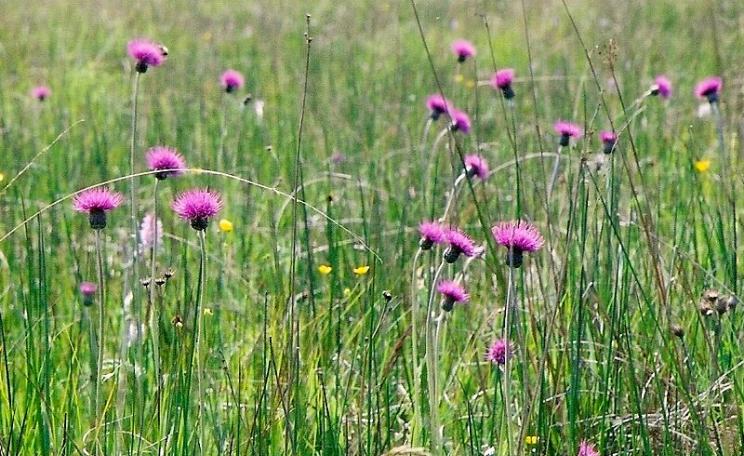The German government is financing a leading European airline’s biofuel trials despite claims from environmental groups it could cause emissions six time greater than fossil fuels.
A total €2.5 million of government money is being ploughed into the six month biofuel trial run by leading European airline Lufthansa, who will be partly financing the €6.6 million project.
Attempts are being made to source jatropha oil for biofuel test flights which aim ‘at reducing overall emissions in air traffic’. However, environmental groups have raised concerns over the use of jatropha as a biofuel crop. A recent report by ActionAid and RSPB found that the development of jatropha plantations would produce 2.5 to six times more greenhouse gas emissions than fossil fuels.
‘Jatropha is far from the ‘sustainable’ fuel that it is made out to be by the aviation industry. In fact, it could end up increasing carbon emissions,’ says Tim Rice, ActionAid’s biofuels expert.
Campaigners believe developing new jatropha plantations leads to the loss of indigenous communities’ farmland and are making life more difficult for people in less industrialised countries.
‘ActionAid’s work with local communities has also revealed how jatropha plantations can create huge social upheaval, including loss of land, homes and livelihoods,’ says Rice.
German sponsorship
The German government’s involvement with the biofuels test flights has been condemned by environmental groups who believe it will have limited benefits for the environment.
‘By subsidising Lufthansa's foray into biofuels, the German government is wasting taxpayers' money on a technology that has few public or environmental benefits, and is harming communities in Africa and India whose land is being grabbed for jatropha,’ says Robbie Blake, agrofuels campaigner at Friends of the Earth.
Despite allegations of land evictions and failed harvests globally, Lufthansa aims to switch biofuel production from palm oil to jatropha and is attempting to 'collect every single jatropha nut in the market’, according to a Lufthansa spokesperson. The airline hope the plant-based jet fuel, made by Finnish biofuel giant Neste Oil, will contain up to 60 per cent jatropha oil.
One engine of the Lufthansa Airbus A321 flying the Hamburg to Frankfurt route will use a 50:50 mix of biofuel and traditional kerosene, during the six month trial. Lufthansa claim 1,500 tonnes of CO2 emissions will be saved during the trial and only sustainable sources of fuel will be used.
‘Our goal must be to achieve a positive contribution to the environment and save CO2,’ said a Lufthansa spokesperson. ‘We are doing our best to consider all sustainability aspects in our trial, which is supervised by external scientists. If we discover that we cannot fulfil our strict sustainability requirements, we will react accordingly.’
However, the sustainability of growing both palm oil and jatropha for biofuels has been questioned and campaigners believe it leads to widespread deforestation.
‘Lufthansa have evidently recognised the damage to people, rainforests and the climate that using palm oil in their flights will cause. But switching from palm oil to jatropha is like flying from the frying pan into the fire. Jatropha is responsible for large-scale land grabbing in Africa and India, displacing local communities and destroying their livelihoods - with no evidence of a reduction in carbon,’ says Blake.
Friends of Earth Germany (Bund) say the recent decision by the German government to phase out nuclear has created a general confusion about the country's overall renewable targets and that biofuels were now part of that confusion. 'I am not sure why the German government is supporting this project. Other than that they are experimenting with biofuels, they have no real legitimisation to do this,' says FOE Transport campaigner Werner Reh.
The German Environment ministry could not comment on the concerns about the use of jatropha, saying there was 'no uniform view at the moment'.
| READ MORE... | |
 |
NEWS Biofuels: jatropha still linked to 'land grabbing and displacement of farmers' European investment companies continue to tout the biofuel as a 'wonder-crop' despite serious environmental and social impacts - Friends of the Earth report |
 |
NEWS Jatropha better suited to local communities, not biofuel markets Study predicts the yields of jatropha will fall in the next decade and that it is better suited to community-level, rather than industrial-scale, production for the biofuel market |
 |
NEWS ANALYSIS City Airport expansion highlights scale of aviation dilemma As the UK government deliberates its new aviation policy campaigners warn that moves to approve airport expansion would put climate targets at risk |
 |
NEWS Airlines admit carbon reductions to come from offsetting Aviation sector wants to avoid a closed trading scheme and forced carbon emissions cuts |
 |
GREEN LIVING Dilemma: How do you define unneccesary travel? With plane, train and automobile emissions still increasing, are we being honest with ourselves about how and how often we travel? Matilda Lee looks at the bare necessities of transport |








